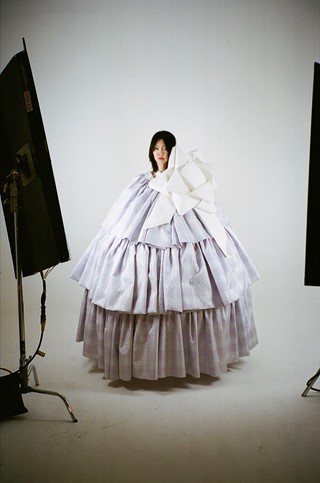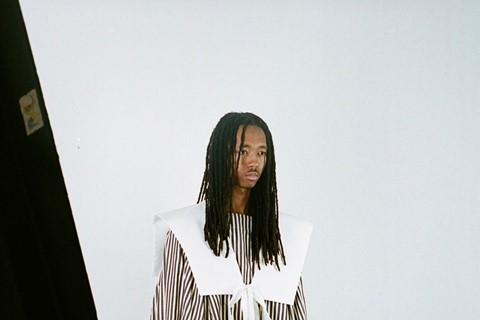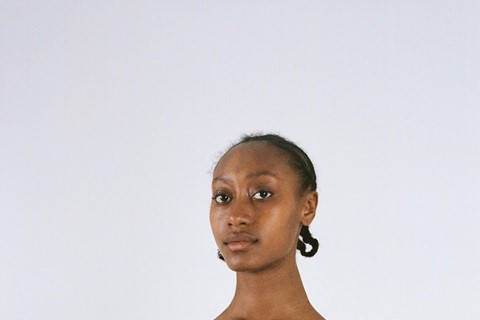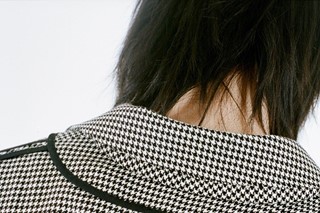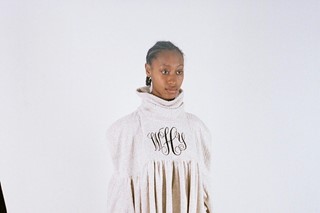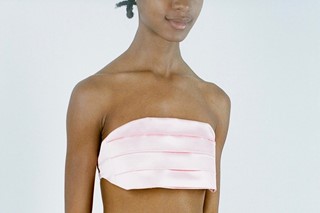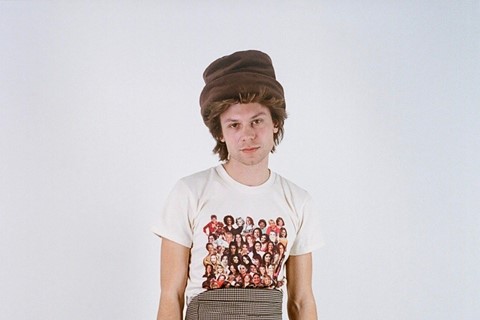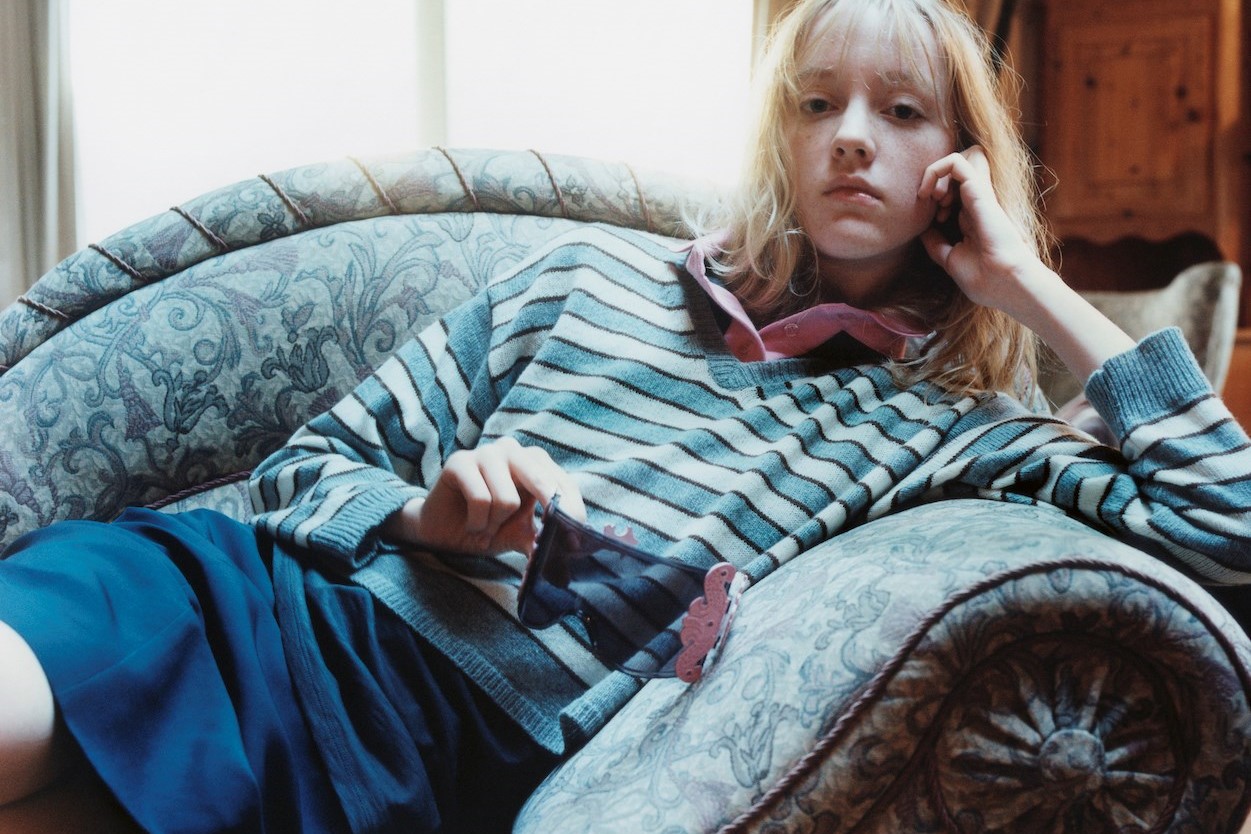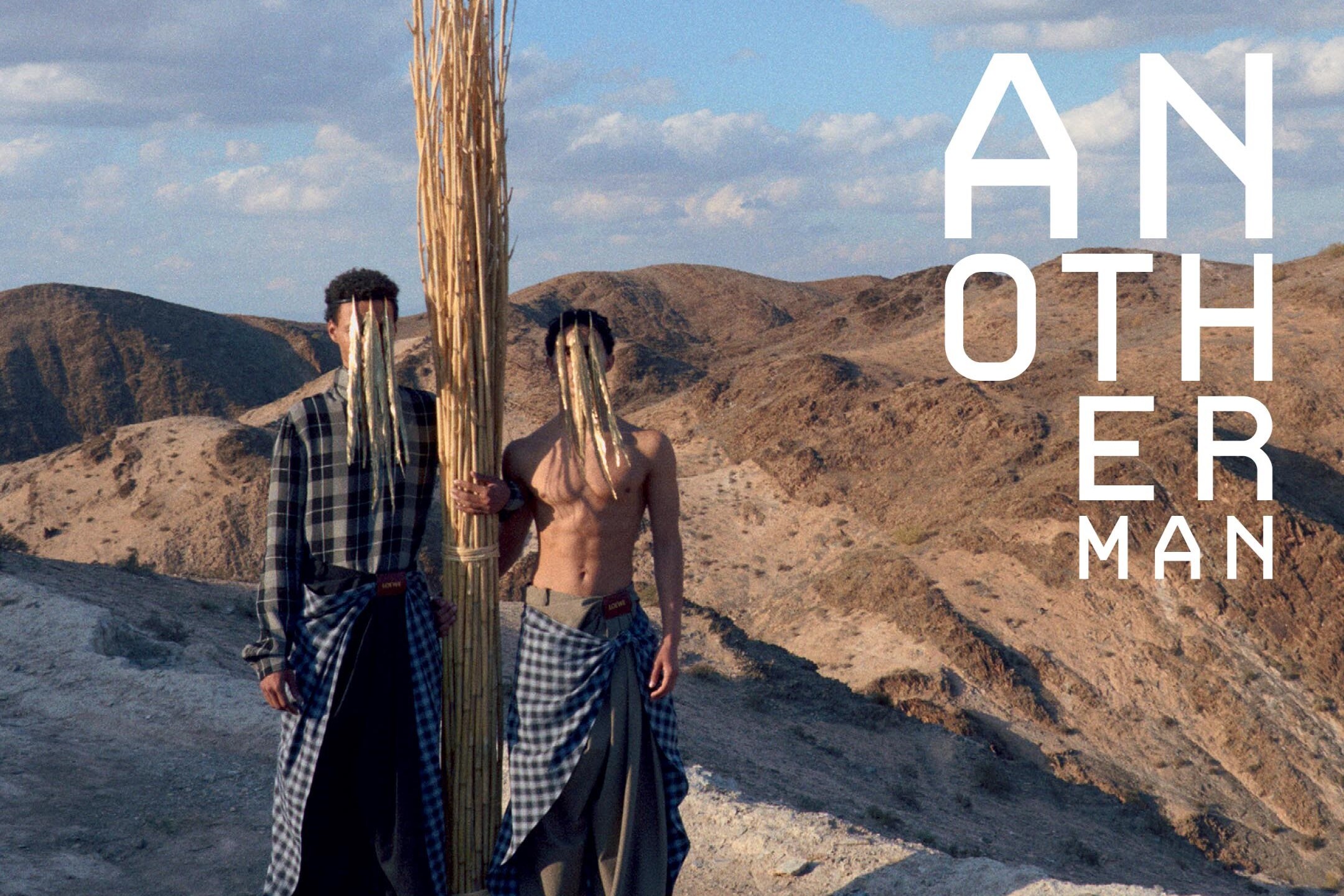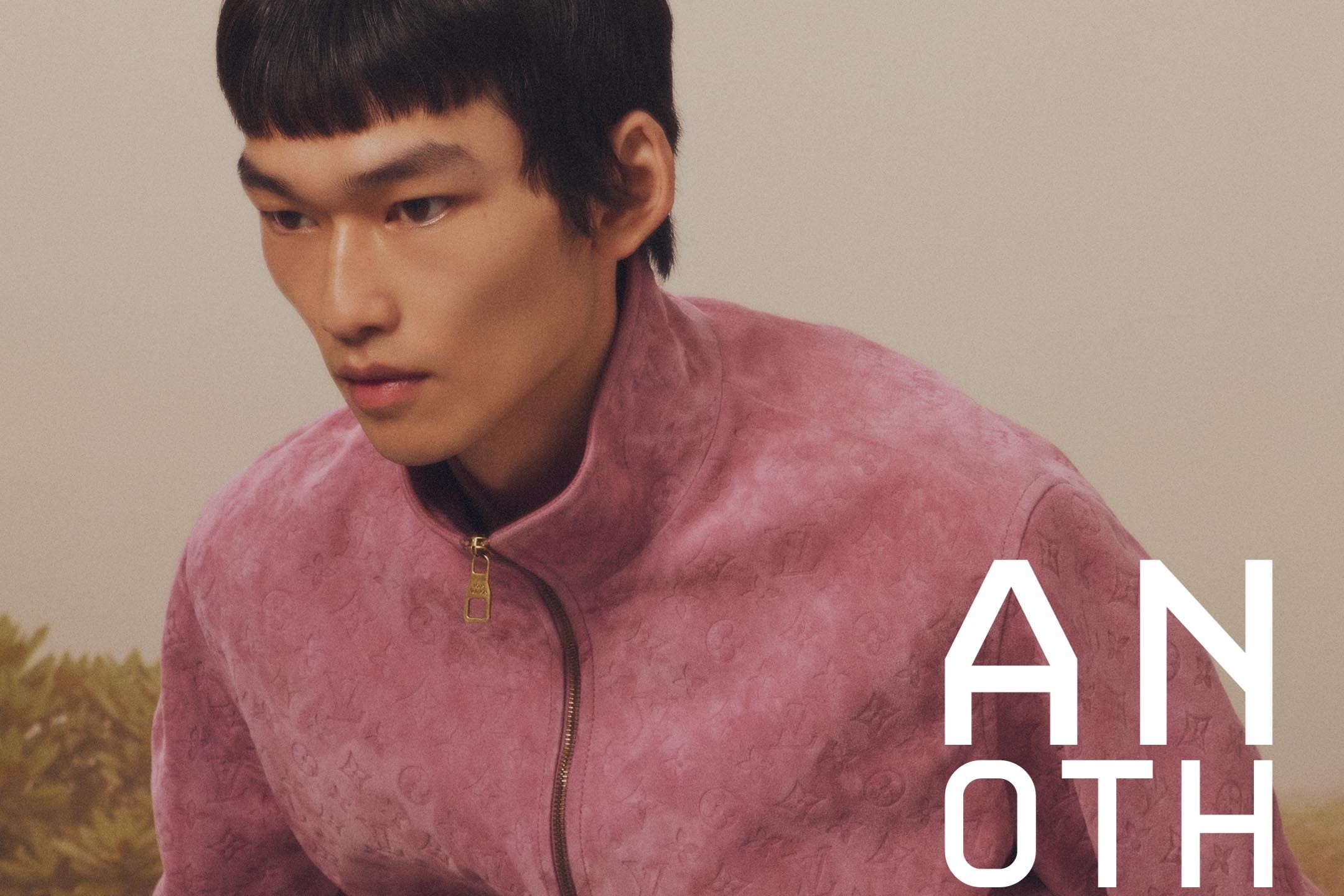Four days before their Autumn/Winter 2019 show, the trio of designers behind New York-based label Vaquera – Patric DiCaprio, Claire Sullivan and Bryn Taubensee – are feeling uncharacteristically zen. “We are normally having panic attacks and identity crises,” says Sullivan. “I think we’re finally figuring things out.”
Conceived in 2013, Vaquera have since proved themselves by far the most interesting of a small number of young designers on a diminishing New York Fashion Week schedule (the week has been beleaguered by a number of high-profile departures). Their offbeat collections deal in both the sacred and profane: attendees to their shows can expect rhinestone-studded crucifixes and terrycloth wedding gowns, body-swamping school uniforms and cowboy hats (vaquera means cowgirl in Spanish, and was previously DiCaprio’s nickname).
“We make clothes that unite people who identify as outsiders,” DiCaprio says. “I think that that’s all of us and that’s what brought us together.” The designer, who taught himself to make clothes on YouTube, began Vaquera alongside Taubensee and David Moses, who has since (amicably) left, for personal reasons. Sullivan, previously an intern, makes up the remaining trio.
This season, the designers were thinking about staying home. They’ve noticed more and more friends, even the previously hard-partying ones, are spending their evenings in. “Have you heard of JOMO?” asks Sullivan. It’s the antonym of FOMO, and stands for ‘joy of missing out’. “I spent the last two years in New York going out a lot and being at parties all the time, and now I’m into being in my home and creating this sanctuary for myself,” she says.
So they thought about people’s homes, and the way that people choose to decorate them – from the lavish to the everyday, and all those that might occupy them. “The grannies at home, the teenage daughter, the hot middle-aged mom,” says DiCaprio. “It feels more mature because we’re exploring outside of that really narrow group of people our age.”
“We were all actually thinking about interior design,” says Taubensee. “I was at my boyfriend’s parents’ house for Thanksgiving, just looking around at how people choose to decorate their homes and how people use it to find their identity and try to carve out who they are.”
“I’ve always been interested in lavish homes in genuine ways,” adds Sullivan. “You can use your interiors to cover up any insecurities that you have by wanting these really superficial, materialistic things.”
“Very Room Raiders. Did you ever watch that show?” says DiCaprio.
So they looked to what they saw around them: particularly the apartments and homes of their family and friends. One of those was Emma Wyman, Dazed’s senior fashion editor, who styles the show. “Emma has a giant pillow that’s like four or five feet [long],” says DiCaprio. “Everyone is like, is that Vaquera? What is that pillow? We were really inspired by that. We literally made that. Not the exact pillow, but a very close replica.”
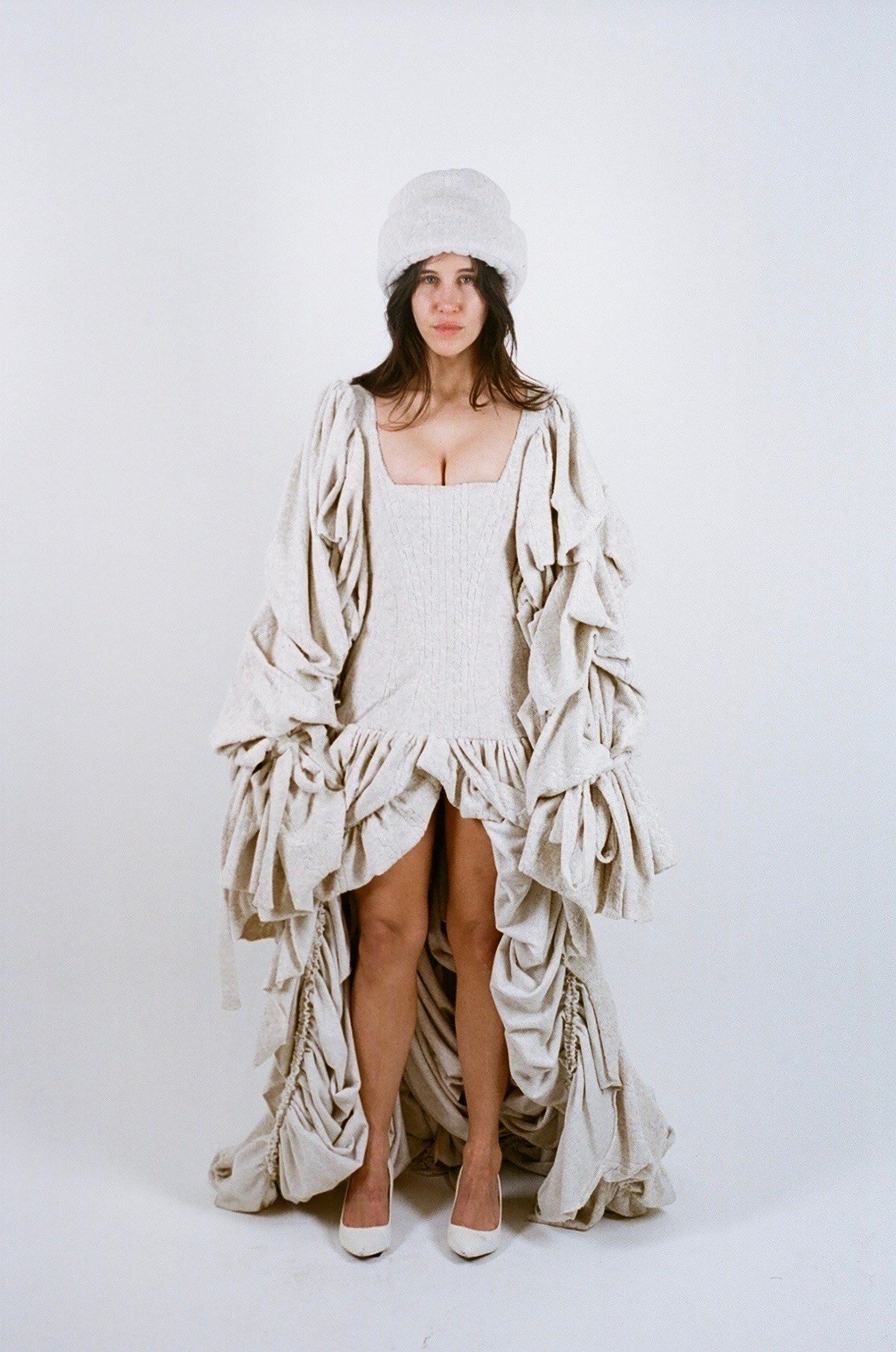
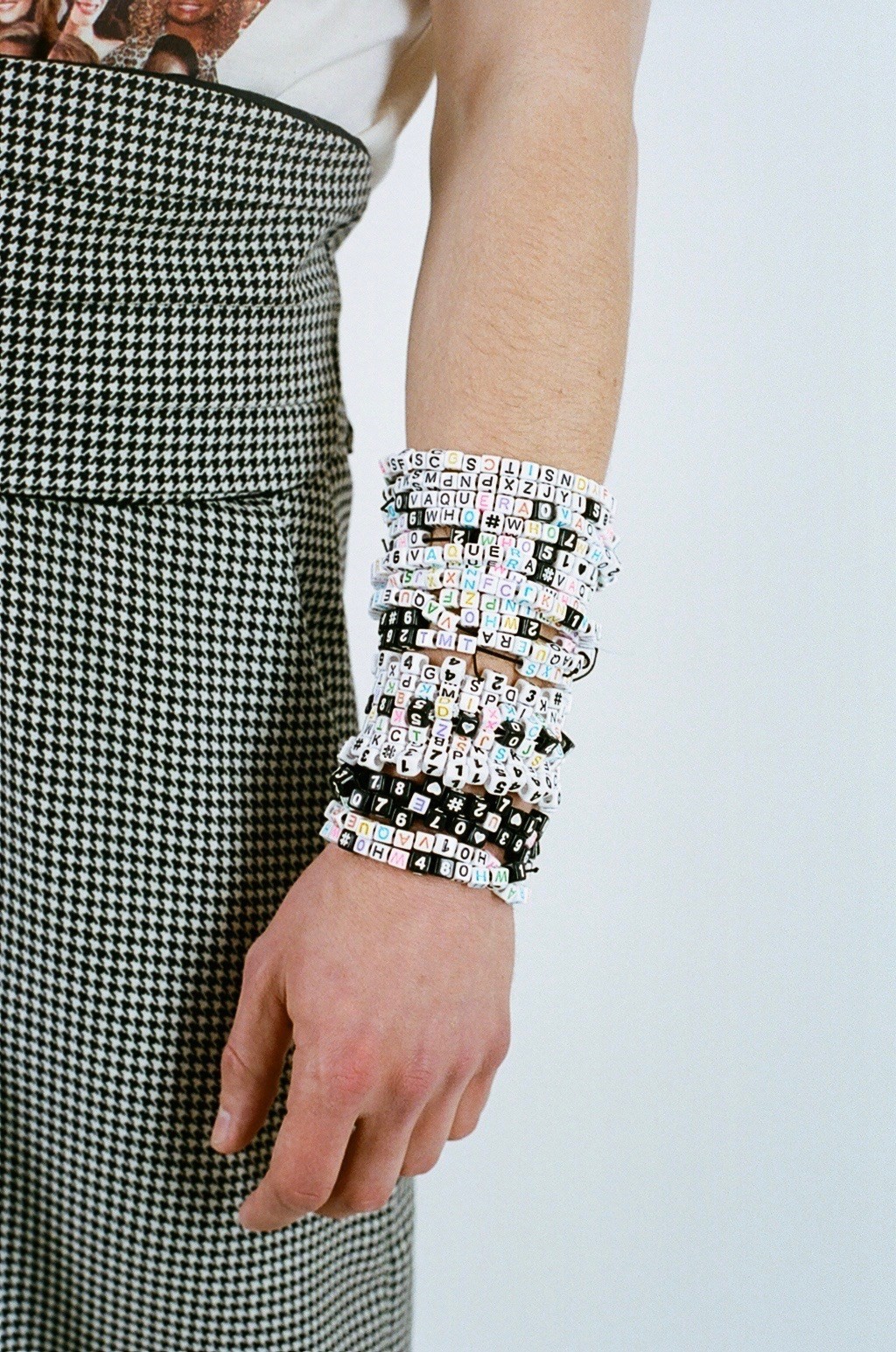
“I think that we’ve all been more excited about things that we see in real life more which is kind of where this theme came from,” DiCaprio continues. “Being at home and noticing people on the street and noticing things that people post on Instagram.” He is particularly fascinated by TikTok, a video-sharing app allowing you to lip-sync to pop culture moments (he marked the app “IN” on his 2019 trend forecast, alongside “commuter scrubs” and “bird watching”.) “It’s people’s real lives, where these sort of ordinary things are happening.”
It has meant a departure from the self-dubbed “fashion fan-fiction” label Vaquera have previously embraced: past seasons have referenced the 1990s collections of Jean Paul Gaultier and Martin Margiela, among others. The latter designer appeared as part of their A/W18 collection as a Sharpie-drawn illustration by artist Mobshity, emblazoned on an oversized polo shirt; Miguel Adrover, Andre Walker and Vivienne Westwood received the same treatment.
“I think before we were really looking at fashion. I was looking at past moodboards and there was a lot of fashion on it, lots of 90s runway,” says DiCaprio. “We’ve always been transparent about our idols, more than other designers – but I think this time we’re focussed on the real world.”
The resulting collection – finished over 14-hour days across the weekend – was shown on Tuesday afternoon at New York’s Ukrainian East Village restaurant. Interiors were the prevalent theme: a ruffled silk nightgown was padded like a duvet; brocade fabrics recalled lavish upholstery of the late 1980s and early 1990s (so too tassels, which ran along the seams of trousers, like those on curtains). Volumes were typically expansive – the final gown, layered and hoop-skirted, and replete with gift bow, was so wide it skimmed the knees of the front row.
Among the fantasy, reality, too: T-shirts, varsity cardigans, hoodies, where the zip wiggled down the front to skew its proportions. There was denim tailoring, or white poplin shirts, which wrapped simply around the body. Taubensee herself walked in a prim herringbone skirt and striped cotton shirt, albeit with in-set bra detailing across the chest.
“I think it’s our most mature collection yet,” says Sullivan.
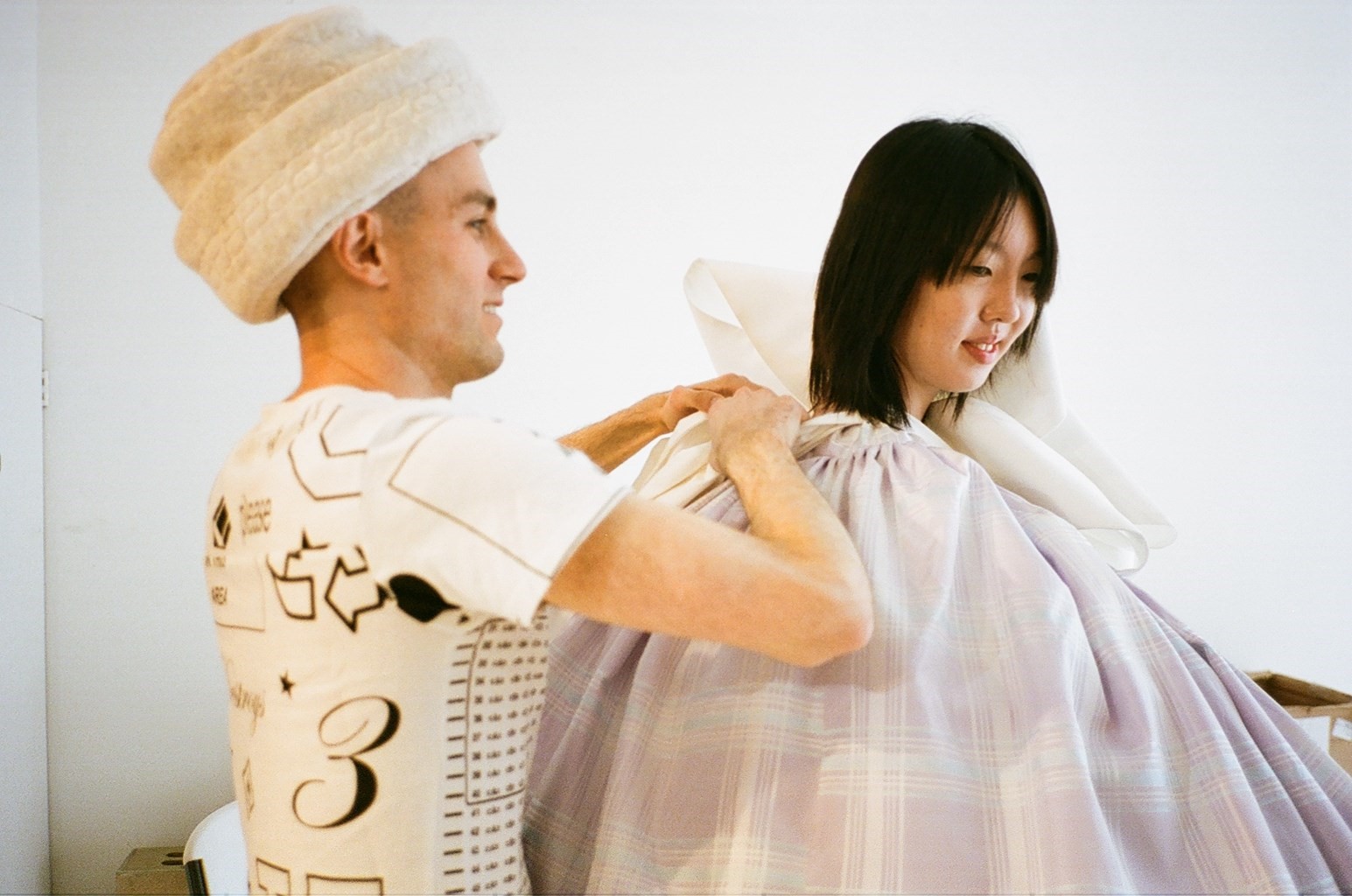
Prior to the show, the designers had been honest about the financial struggles young labels face in the city. A recent New York Times profile revealed DiCaprio, Sullivan and Taubensee do not pay themselves a salary, and have to take other jobs in the city in order to live. “I feel like we were really scared this season – at least, I was. I’ve been living in fear for so long, and this whole thing is very scary,” Taubensee told the Times’ Matthew Schneier at the time.
This season, though – and in the weeks prior, when they released the brand’s very first pre-collection via lookbook – the designers have found commercial pressures are having an enlightening effect. “I think that we are really inspired by being more commercial,” says DiCaprio. “We’re excited to make clothes that we know people will want to wear in the real world, which is really important part of having a clothing brand and an exciting way to spread your message, not just be on Vogue Runway.”
“It’s very genuine,” adds Sullivan. “I think it would be easy to say that ‘oh yeah we’re doing it because we have to,’ but really it’s something that we’re all really drawn to right now.”
The group are finding it easier than ever to reach consensus: Sullivan contributes it to a “loss of egos”. They each plough their energies into particular facets of running a business. Taubensee is the organiser – she describes her work as “internal”. DiCaprio, meanwhile, a self-confessed “product of the Tumblr generation” is responsible for the visual references, and the “general mood and direction in a super broad sense,” he says. “I’m definitely not the organised one. The opposite.”
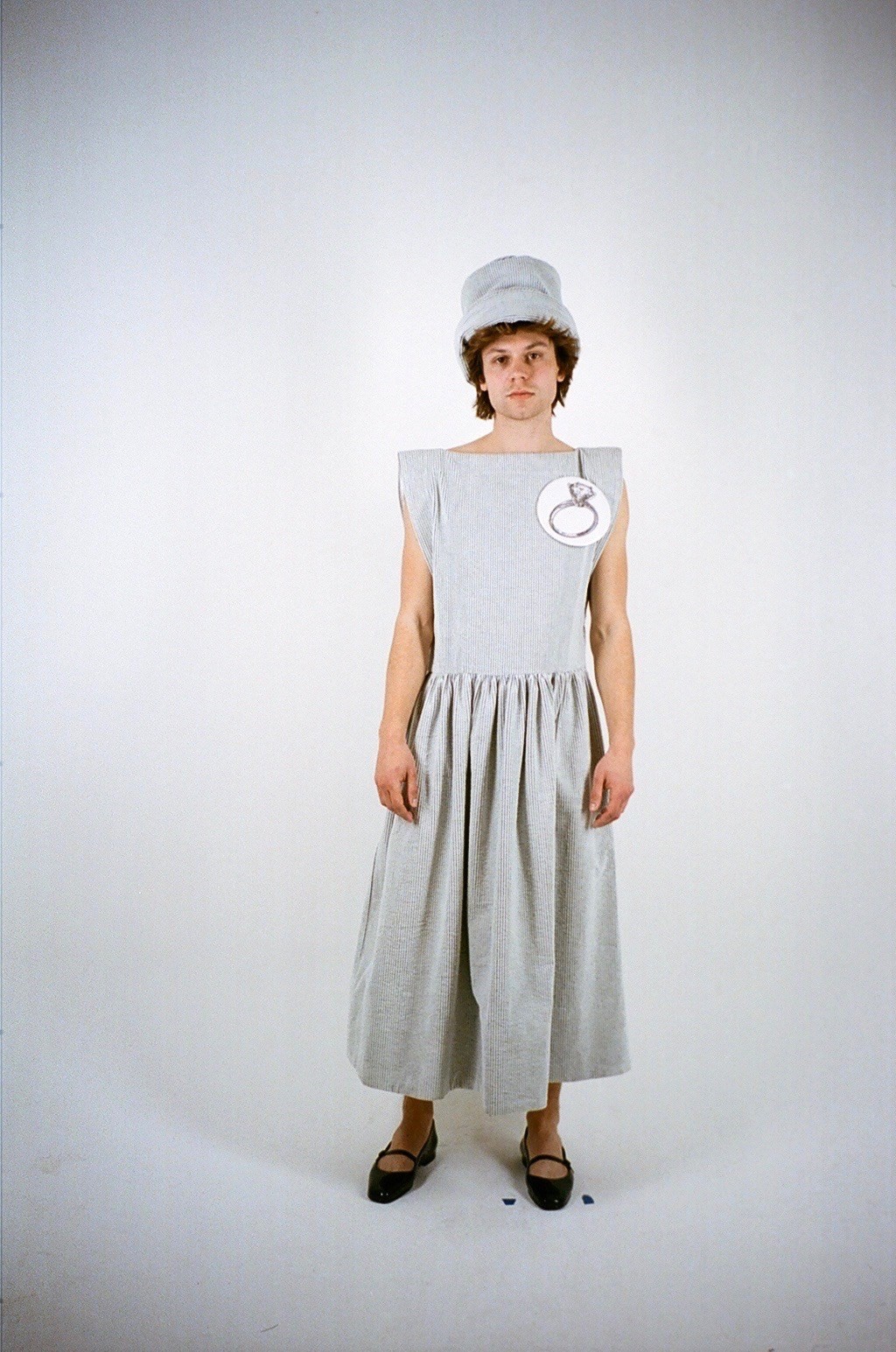
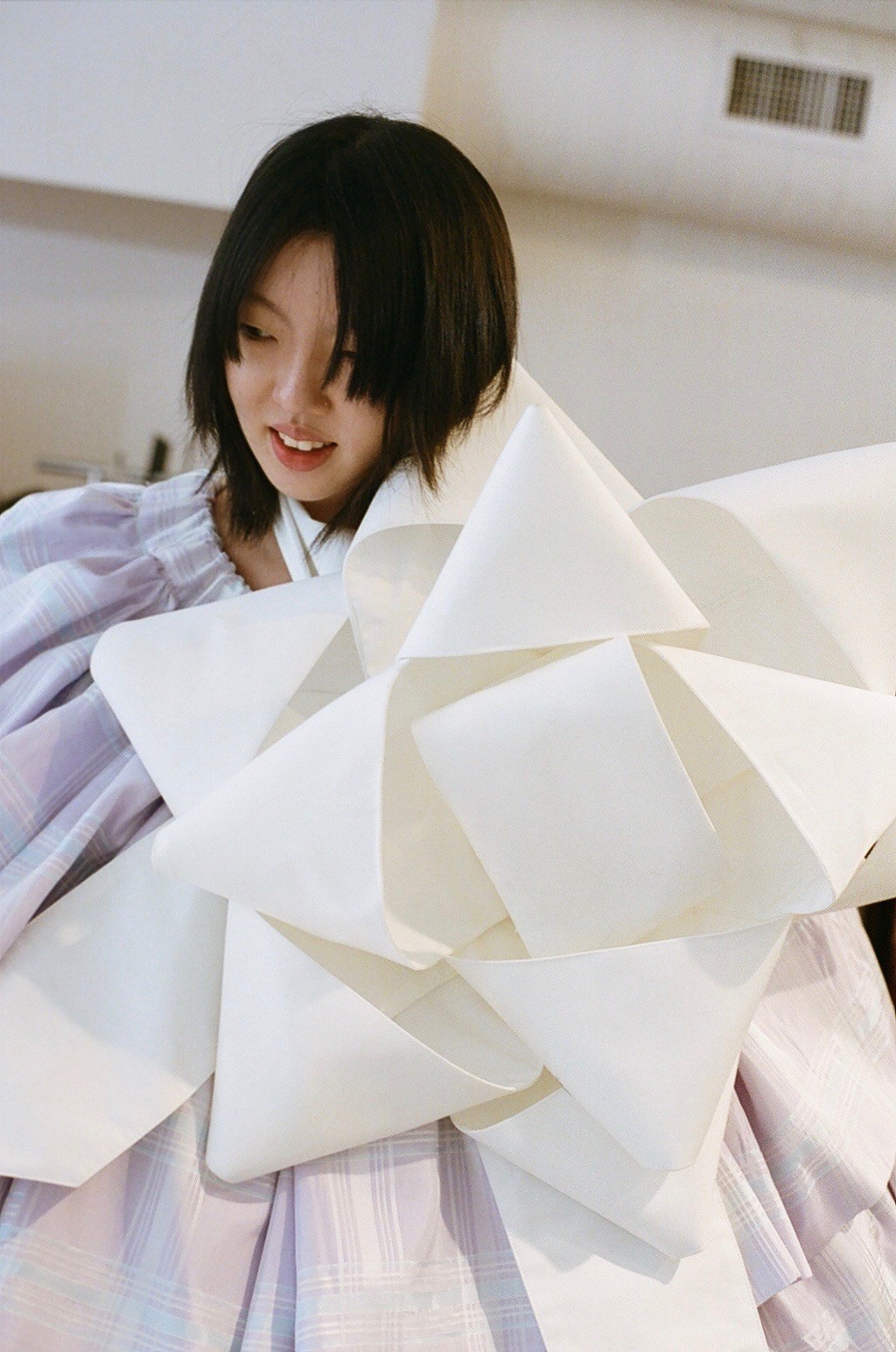
They have been thinking about character types, actually – particularly the alignments used to categorise characters on the game Dungeons & Dragons, which have recently become a popular meme format (Vaquera themselves posted one such meme prior to the show on the brand’s Instagram account, asking followers to tag themselves).
“I would be a chaotic good, I think...” says DiCaprio. “I think that Bryn and I are both neutral good,” adds Sullivan. “I tested as chaotic good, but I think I’m neutral good.”
“Yeah, we’re neutral good,” says Taubensee. “Vaquera are all good!”
Mid-way through the show, a model walked the runway wearing a towelling top stitched with the monogram ‘WHY’. As Vaquera comes of age, it’s a question the designers have been asking themselves. “We were trying to decide what our mission statement was a couple weeks ago,” says DiCaprio. “We were like: ‘Why are we doing what is this? What have we boiled it down to?’”
New York is a city of outsiders, they decided. It is easy to feel outside of things. No one really feels included. People have dreams and fantasies of finding belonging there, but the reality is often all too different.
“So we’re asking,” says DiCaprio, “how can we come together and make this statement that makes other people feel not so alone?”
